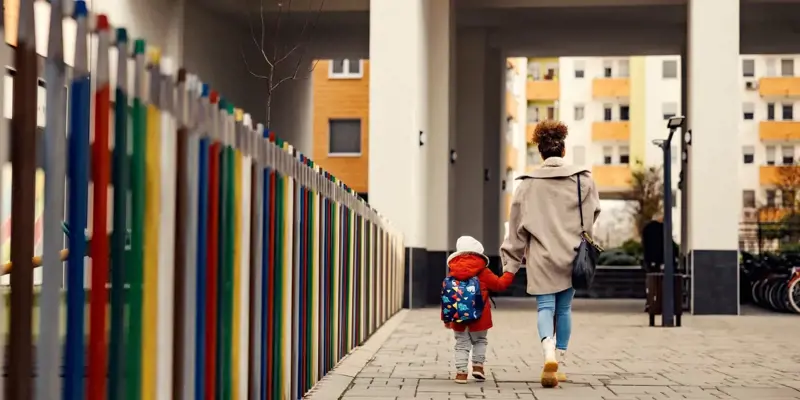Apart from sharing the responsibility of providing in-home care for children, nannies and au pairs are quite different in other respects. We have summarised the main differences in the table below and you can read additional information in our dedicated articles: What is an Au Pair? And What is a nanny?
| Nannies |
Au Pairs |
- Usually experienced and/or working towards a qualification
- Australian – no need for a Visa
- Can be live in or live out
- Can be any age
- Unrestricted employment period
- Working hours determined by contract
- Can work unsupervised from the outset
- Can work unsupervised with new born and very young children
- Household duties and cooking defined by contract
- Paid a wage in accordance with Australian law
- Maybe eligible for Government subsidy if a registered provider
- Likely to be an Australian resident or citizen
- Likely to have an Australian driver’s license
- Can communicate with school, child care centre and other providers on behalf of family
- Will complete daily communication diary
- Can be met and interviewed in person
- Australian working with children check
- May be able to offer play based and structured learning activities
- Likely to be trained in first aid and hold a certificate
- Regardless of whether live in or out, when not working will have own interests, activities and friends
|
- May or may not have had experience working with children
- Will need to apply for a Visa
- Live in
- Visa requires them to be 18-30 years old
- 6-12 months
- Working hours may vary according to study timetable and other commitments
- May need training and supervision especially at first
- Must be supervised with new born and very young children
- Household duties and cooking related only to children
- Paid ‘pocket money’
- Ineligible for Government subsidy
- Provides opportunities for language and cultural exchange
- Likely to have an international driver’s license
- Family will need to maintain contact with other providers
- Will complete daily communication diary
- Family may have to conduct interview over the phone and may not meet au pair until they arrive
- Working with children check from au pair’s country
- Activities more likely to be unstructured
- May or not be trained in first aid
- Treated as a family member and to be included in weekend activities, mealtimes etc. even when not working
|


































